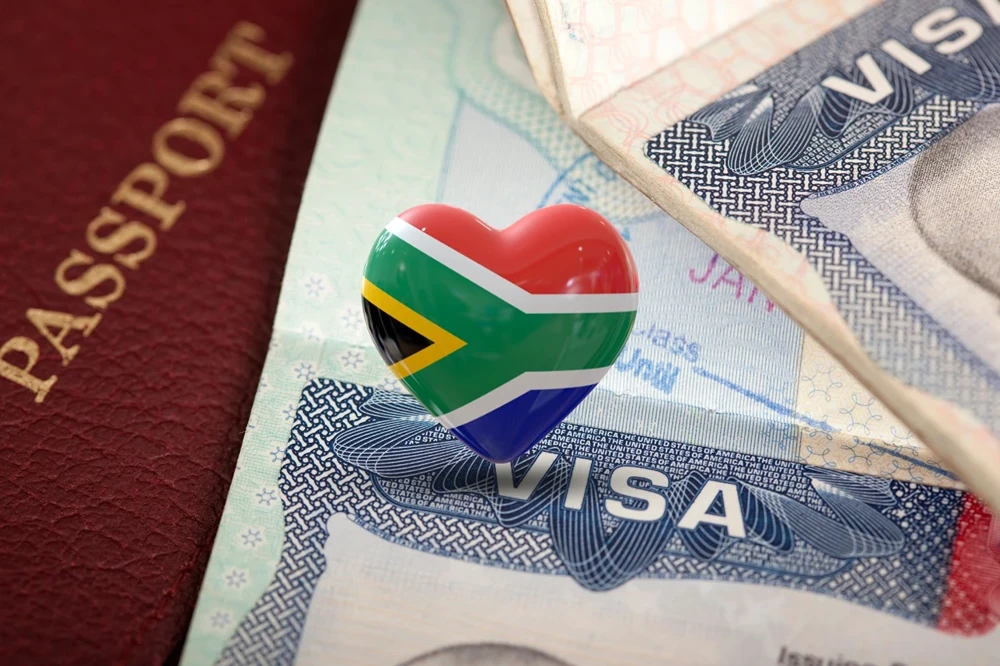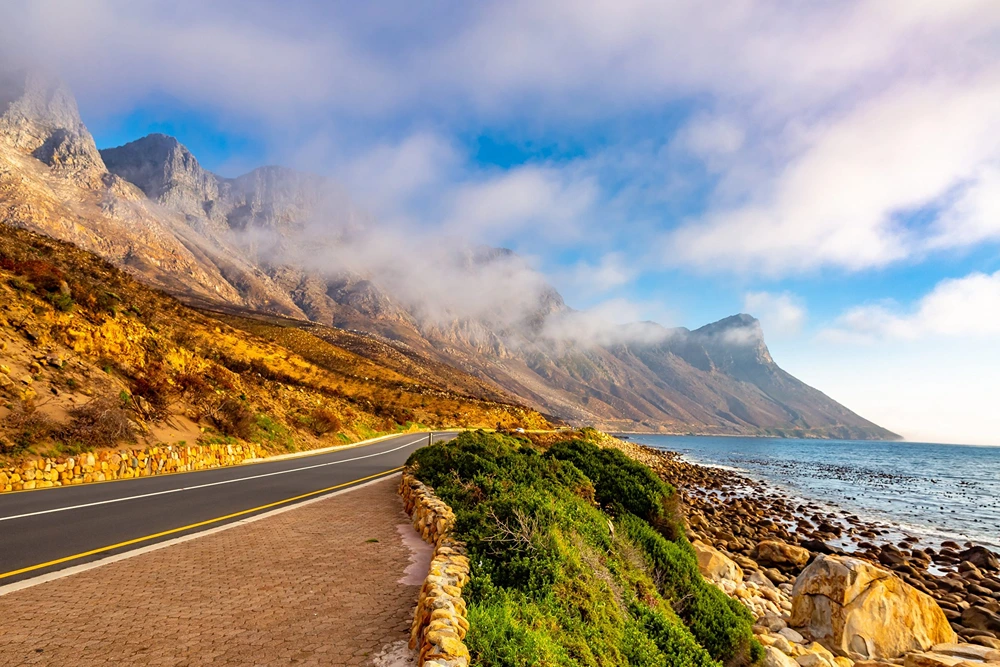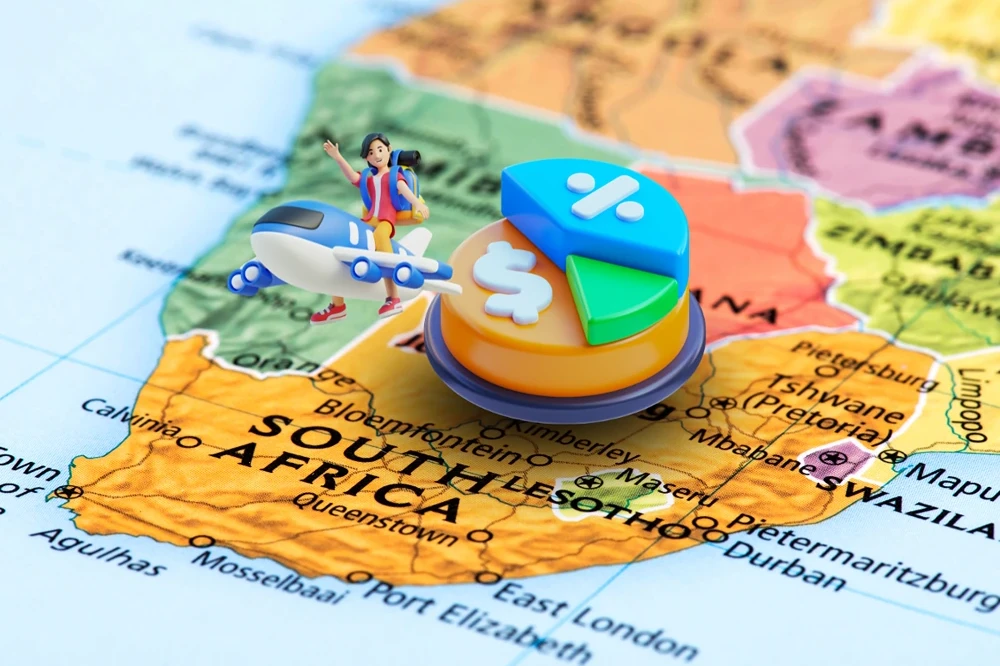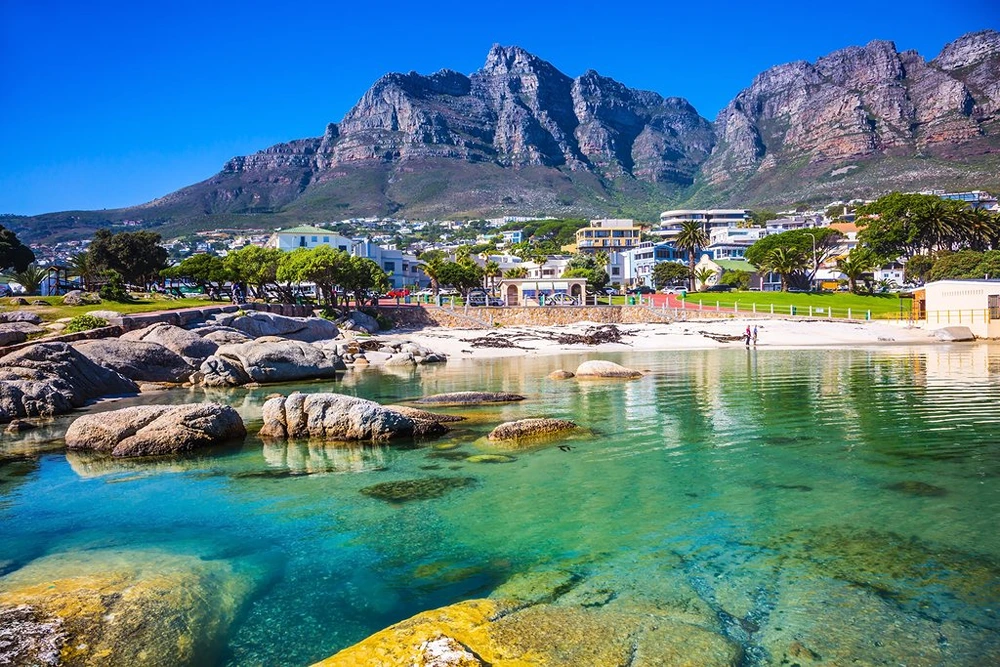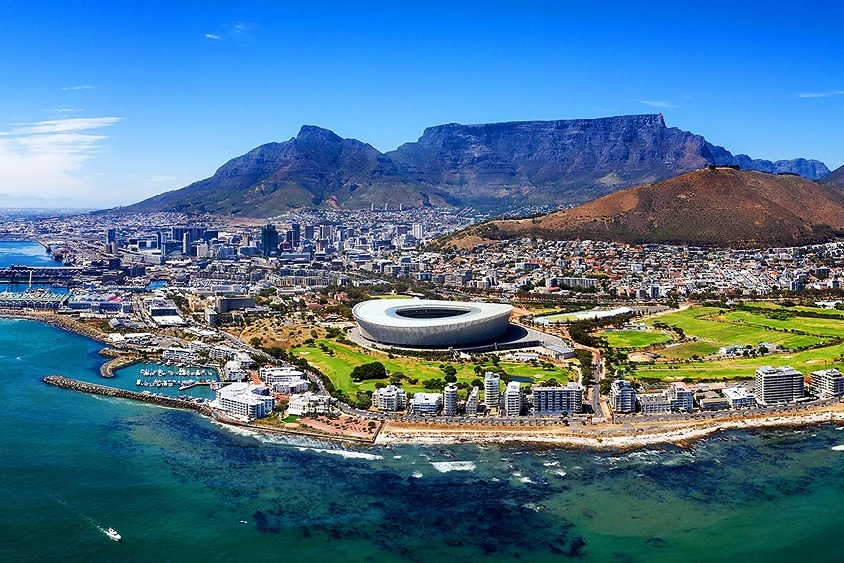South Africa, often referred to as the “Rainbow Nation,” is a land of extraordinary diversity and breathtaking beauty. From the iconic Table Mountain overlooking Cape Town to the vast savannas of Kruger National Park, South Africa offers an unparalleled blend of:
- Natural wonders
- Rich cultural heritage
- Modern urban experiences
- World-renowned wildlife
Travel Resources
Prepare for your journey to South Africa with these essential resources:
- Cheapest Flights to South Africa: Main airports include OR Tambo International (Johannesburg) and Cape Town International. Find affordable flights to South Africa using our flight search tool.
- Insure Your Trip: Ensure peace of mind with comprehensive travel insurance coverage. Protect yourself against unexpected events during your visit to South Africa.
- Rent a Car in South Africa: Explore South Africa’s scenic routes and hidden gems at your own pace. Renting a car is recommended for maximum flexibility. Rent a car online and embark on an unforgettable road trip adventure.
- Book Your Tours: Discover the best tours and experiences in South Africa. From safaris in Kruger National Park to wine tastings in Stellenbosch, plan your itinerary with trusted local operators. Options include safari tours, township cultural tours, and wine tasting tours.
- Essential Things to Pack: Prepare for your trip to South Africa with our packing checklist. Pack sunscreen, comfortable clothing, and other travel essentials for a memorable stay.
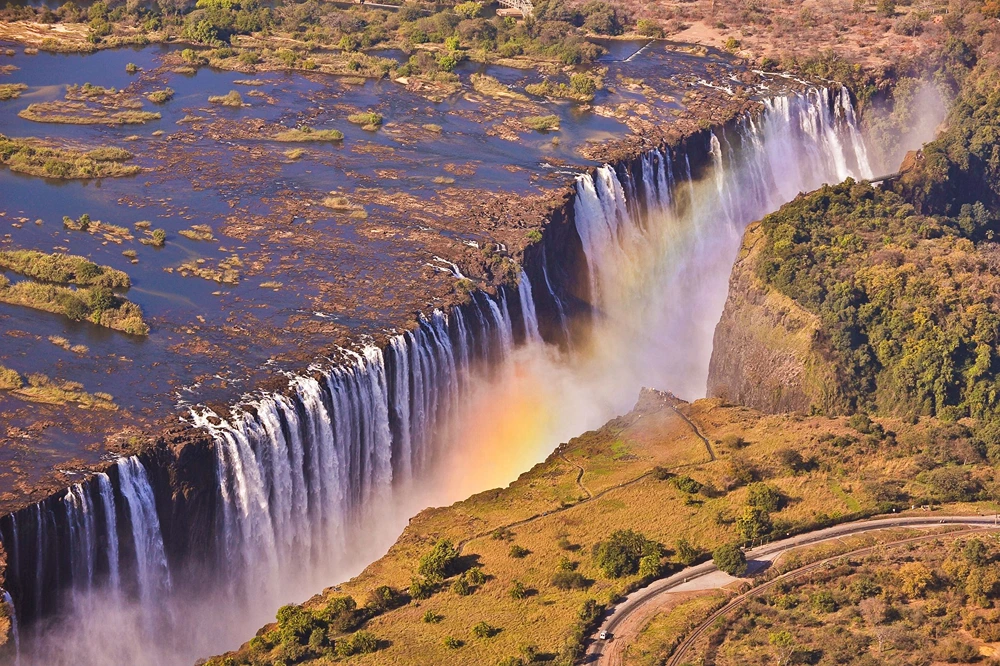
Some History First
South Africa’s history is complex and multilayered:
- Indigenous cultures: The San and Khoikhoi people were the earliest inhabitants.
- Colonial era: Dutch East India Company established a settlement in 1652, followed by British colonization.
- Apartheid: Racial segregation policy implemented from 1948 to 1994.
- Nelson Mandela: Key figure in the anti-apartheid movement and first democratically elected president.
- Post-apartheid era: Ongoing process of reconciliation and development.
Visit the Apartheid Museum in Johannesburg or Robben Island near Cape Town for in-depth historical insights.
South Africa Today
Modern South Africa is a vibrant mix of cultures and experiences:
- Cosmopolitan cities: Cape Town, Johannesburg, and Durban offer world-class amenities.
- Economic hub: Africa’s second-largest economy with a diverse industrial base.
- Cultural diversity: 11 official languages and a multitude of ethnic groups.
- Arts and music: Thriving scene with international recognition.
- Sports: Passionate about rugby, cricket, and football.
Is South Africa Safe?
Safety is a common concern for travelers considering a visit to South Africa. While the country does face challenges with crime, particularly in urban areas, millions of tourists visit South Africa each year without incident.
Key safety tips:
- Stay vigilant, especially after dark in urban areas
- Stick to well-lit, populated areas
- Use reliable transportation options
- When driving, keep doors locked and windows closed in urban areas
- Be cautious when using GPS navigation in unfamiliar locations
- In nature reserves, always follow guide instructions and park rules
Many tourist areas have increased security measures, and the South African tourism industry takes visitor safety seriously. By staying informed, using common sense, and respecting local advice, travelers can greatly minimize risks and fully enjoy the incredible experiences South Africa has to offer.
Where is South Africa?
South Africa is located at the southern tip of Africa:
- Borders: Namibia, Botswana, Zimbabwe, Mozambique, and Swaziland (Eswatini).
- Coastline: 2,798 km (1,739 mi) along the South Atlantic and Indian Oceans.
- Major regions:
- Cape Region: Mediterranean climate, famous for the Cape Winelands.
- Garden Route: Stretching from Western to Eastern Cape, known for scenic beauty.
- Kruger National Park: In the northeast, world-renowned for wildlife.
- Drakensberg Mountains: Spectacular mountain range in KwaZulu-Natal.
Latest Articles
From The Area
What is the Best Time to Visit South Africa?
The best time to visit depends on your interests:
- Summer (November to February):
- Ideal for beach vacations
- Peak wildlife viewing in many parks
- Can be very hot and busy
- Winter (June to August):
- Mild temperatures in many regions
- Excellent for whale-watching along the coast
- Best time for malaria-free safaris
- Spring (September to October) and Autumn (March to May):
- Pleasant temperatures
- Good wildlife viewing
- Less crowded
Tip: Consider the region you’re visiting, as climate can vary significantly across the country.
How to Get to South Africa & Around
Navigate transportation options within South Africa efficiently:
- Domestic flights: Quick way to cover large distances.
- Car rental: Recommended for flexibility. Drive on the left side of the road.
- Buses: Intercity services available, including luxury options.
- Trains: Limited but scenic routes available, including the luxurious Blue Train.
- Uber and metered taxis: Available in major cities.
Things to Do in South Africa
Embark on thrilling wildlife safaris, hike through picturesque landscapes, and sample world-class wines in the Cape Winelands. Explore historic sites, vibrant markets, and vibrant cultural festivals.
South Africa offers a wealth of experiences:
- Wildlife safaris: Kruger National Park, Hluhluwe–Imfolozi Park, Addo Elephant National Park.
- City exploration: Cape Town’s V&A Waterfront, Johannesburg’s Maboneng Precinct.
- Historical sites: Robben Island, Apartheid Museum, Cradle of Humankind.
- Natural wonders: Table Mountain, Blyde River Canyon, Garden Route.
- Adventure activities: Bungee jumping, shark cage diving, paragliding.
- Cultural experiences: Township tours, traditional villages, local markets.
- Wine tasting: Cape Winelands, including Stellenbosch and Franschhoek.
- Beaches: Clifton and Camps Bay in Cape Town, Durban’s Golden Mile.
Where To Stay In South Africa
Choose from luxury game lodges, boutique hotels, and budget-friendly guesthouses. Stay in vibrant neighborhoods or scenic rural settings to enhance your South African experience.
Accommodation options cater to all budgets and preferences:
- Luxury game lodges: For an unforgettable safari experience.
- Boutique hotels: Often in scenic locations or historic buildings.
- Self-catering apartments: Great for families or longer stays.
- Backpacker hostels: Budget-friendly options in major cities and tourist areas.
- Guesthouses and B&Bs: For a more personal touch.
- Farm stays: Experience rural life, especially in the Western Cape.
Tip: Book in advance for peak seasons and popular destinations.
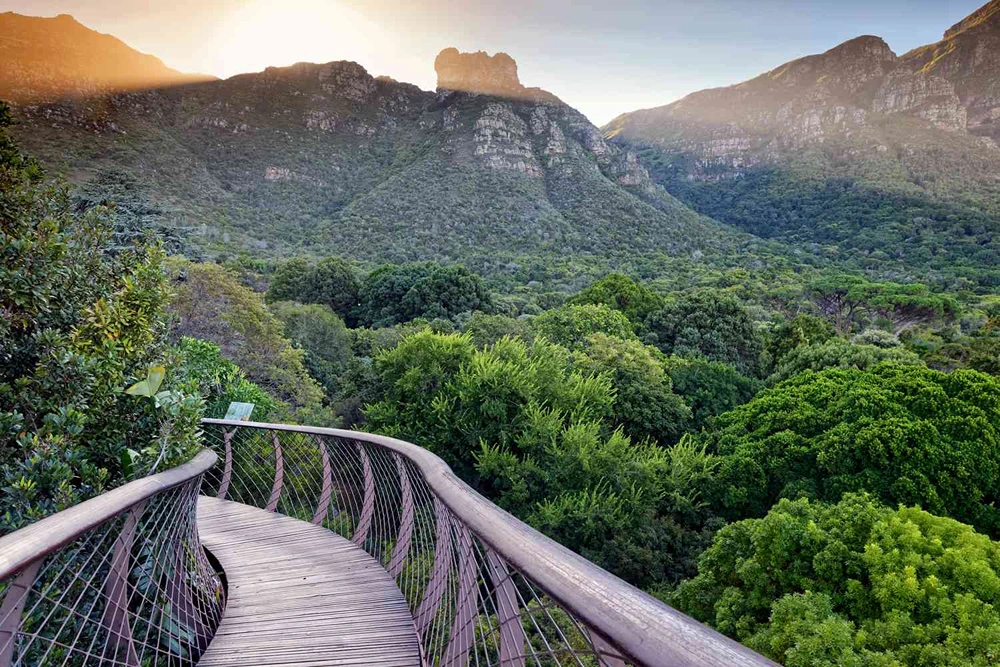
What To Eat In South Africa
South African cuisine reflects its multicultural heritage:
- Braai: South African barbecue, a social event as much as a meal.
- Bobotie: Spiced minced meat dish with an egg custard topping.
- Biltong: Dried, cured meat similar to jerky.
- Chakalaka: Spicy vegetable relish.
- Malva pudding: Sweet pudding of Cape Dutch origin.
- Bunny chow: Curry served in a hollowed-out loaf of bread.
- Cape Malay cuisine: Flavorful dishes with Indonesian influences.
- World-class wines: Especially from the Cape Winelands region.
Don’t miss: Local markets for fresh produce and street food.
Entry & Exit Requirements
Requirements can vary based on nationality:
- Visas: Many nationalities can enter visa-free for up to 90 days.
- Passport: Must be valid for at least 30 days beyond your intended stay.
- Return ticket: Proof of onward travel may be required.
- Vaccinations: Yellow fever certificate required if coming from affected areas.
Always check the latest requirements with the South African Department of Home Affairs or your nearest South African embassy.
What To Pack For Your Trip
Essentials for your South African adventure:
- Sun protection: High SPF sunscreen, hat, sunglasses.
- Insect repellent: Especially for safari areas.
- Comfortable walking shoes: For city exploration and nature walks.
- Warm layers: Evenings can be cool, even in summer.
- Camera: For capturing wildlife and scenic landscapes.
- Adaptors: South Africa uses Type M plugs.
- Lightweight, breathable clothing: For hot days.
- Modest clothing: For visiting religious sites.
- Small medical kit: Including any personal medications.
Remember: Respect local customs and dress codes, especially when visiting cultural sites and nature reserves.
FAQs
Explore commonly asked questions about visiting South Africa:
South Africa is generally safe for tourists, but caution is advised in urban areas. Follow safety guidelines and stay informed during your visit.
Certain vaccinations, such as for yellow fever and hepatitis, may be required or recommended. Consult with your healthcare provider before traveling.
It’s advisable to drink bottled or filtered water in South Africa to avoid potential health risks.
South Africa has 11 official languages, including English, Afrikaans, and isiZulu. English is widely spoken in tourist areas.




